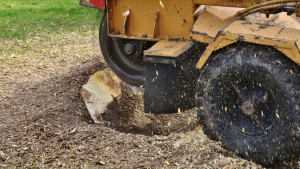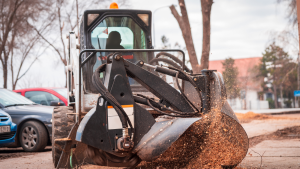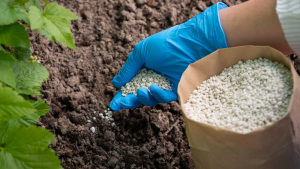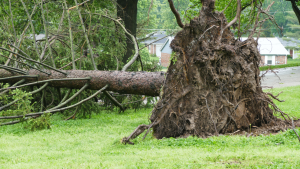When it comes to maintaining a thriving landscape, one factor that often gets overlooked is soil quality. Ignoring soil quality can lead to a host of issues that affect not only the health of your trees but also the overall vitality of your garden. Here’s why paying attention to soil is crucial and what can happen when soil quality is ignored.
Tree care is a vital practice, akin to offering a gentle hug that ensures their well-being. Rely on Joliet Tree Service for exceptional and dependable tree care. Experience the unmatched expertise of Joliet Tree Service, your go-to expert for all tree care services in Joliet, Illinois!
The Importance of Soil Quality
Soil is the foundation of any garden or landscape, providing essential nutrients, water, and support for plant roots. High-quality soil ensures that trees and plants can grow strong and healthy. When soil conditions are ideal, trees can access the necessary nutrients and water, leading to robust Growth and resilience against pests and diseases.
What Happens When Soil Quality Is Low?
- Stunted Growth Ignoring soil quality can lead to poor soil conditions, such as compacted or nutrient-deficient soil. Compacted soil restricts root expansion and limits access to essential resources, which can stunt tree growth significantly. When roots are unable to spread and access adequate water and nutrients, trees struggle to reach their full potential. This results in reduced height, sparse foliage, smaller leaves, and overall weakened health. In severe cases, stunted Growth may lead to long-term developmental issues or the tree’s inability to thrive.
- Increased Susceptibility to Pests and Diseases Trees growing in low-quality soil are often more susceptible to pests and diseases. Nutrient deficiencies weaken a tree’s natural defenses, making it easier for pests to infest and diseases to spread.For instance, insufficient nitrogen might result in weak, thin foliage that attracts aphids, while inadequate potassium can reduce resistance to fungal infections. Without the strength and resilience provided by a well-nourished root system, the tree may experience more frequent and severe pest issues, potentially leading to decline or death if not addressed promptly.
- Poor Water Drainage Soil quality plays a crucial role in water management. Compacted soil or soil lacking sufficient organic matter can lead to poor water drainage, causing water to accumulate around the roots. This waterlogging deprives roots of the oxygen they need, increasing the risk of root rot and other moisture-related issues. On the other hand, soil that drains too quickly, often due to poor structure or insufficient organic content, may not retain enough moisture, leading to drought stress and inadequate hydration for the tree’s needs. Both scenarios can severely impact tree health and Growth.
- Nutrient Deficiencies Soil that lacks essential nutrients or has an imbalanced pH can lead to nutrient deficiencies in trees. Important nutrients including potassium, phosphorus, and nitrogen are crucial for healthy Growth and development. Signs of nutrient deficiencies include yellowing leaves (chlorosis), poor Growth, reduced flowering or fruiting, and weak branches. Nutrient imbalances can also affect soil pH, further complicating nutrient availability and tree health. Addressing these deficiencies through soil testing and appropriate amendments is critical to maintaining robust and thriving trees.
- Reduced Soil Structure Healthy soil structure supports optimal root growth and water infiltration. Soil with a good structure has a harmonious combination of clay, silt, sand, and organic materials, which facilitates aeration and nutrient absorption. Neglecting soil quality can lead to soil compaction, where particles are pressed together too tightly, reducing pore spaces and making it difficult for roots to penetrate and absorb nutrients and water. Compacted soil also impairs the natural processes of soil aeration and drainage, leading to a less hospitable environment for tree roots and potentially stunting tree growth or causing health issues. Improving soil structure through practices like adding organic matter or aeration can help restore its functionality and support tree health.
Conclusion
Ignoring soil quality is a critical oversight that may have profound impacts on one’s health and vitality of your trees and landscape. Recognizing the significance of soil quality and addressing problems such fertilizer deficits, compacted soil, and poor drainage, you can ensure that your trees receive the support they need to thrive. Investing in regular soil maintenance and monitoring can lead to healthier, more resilient trees and a more beautiful, sustainable landscape. Don’t let poor soil quality undermine your garden’s potential—take action now to cultivate a thriving environment for your trees and plants.






